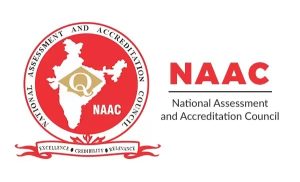IQAC - Introduction/Objectives/Functions & Benefits
Introduction
In pursuance of its Action Plan for performance evaluation, assessment and accreditation and quality up-gradation of institutions of higher education, the National Assessment and Accreditation Council (NAAC), Bangalore proposes that every accredited institution should establish an Internal Quality Assurance Cell (IQAC) as a post-accreditation quality sustenance measure. Since quality enhancement is a continuous process, the IQAC will become a part of the institution’s system and work towards realisation of the goals of quality enhancement and sustenance. The prime task of the IQAC is to develop a system for conscious, consistent and catalytic improvement in the overall performance of institutions. For this, during the post-accreditation period, it will channelize all efforts and measures of the institution towards promoting its holistic academic excellence.
Objectives
The primary aim of IQAC is
- To develop a system for conscious, consistent and catalytic action to improve the academic and administrative performance of the institution.
- To promote measures for institutional functioning towards quality enhancement through internalization of quality culture and institutionalization of best practices.
Benefits
IQAC will facilitate / contribute
- Ensure heightened level of clarity and focus in institutional functioning towards quality enhancement;
- Ensure internalization of the quality culture;
- Ensure enhancement and coordination among various activities of the institution and institutionalize all good practices;
- Provide a sound basis for decision-making to improve institutional functioning;
- Act as a dynamic system for quality changes in HEIs;
- Build an organised methodology of documentation and internal communication.
Functions
Functions of the IQAC are:
- Development and application of quality benchmarks/parameters for various academic and administrative activities of the institution;
- Facilitating the creation of a learner-centric environment conducive to quality education and faculty maturation to adopt the required knowledge and technology for participatory teaching and learning process;
- Arrangement for feedback response from students, parents and other stakeholders on quality-related institutional processes;
- Dissemination of information on various quality parameters of higher education;
- Organization of inter and intra institutional workshops, seminars on quality related themes and promotion of quality circles;
- Documentation of the various programmes/activities leading to quality improvement;
- Acting as a nodal agency of the Institution for coordinating quality-related activities, including adoption and dissemination of best practices;
- Development and maintenance of institutional database through MIS for the purpose of maintaining /enhancing the institutional quality;
- Development of Quality Culture in the institution;
- Preparation of the Annual Quality Assurance Report (AQAR) as per guidelines and parameters of NAAC, to be submitted to NAAC.




